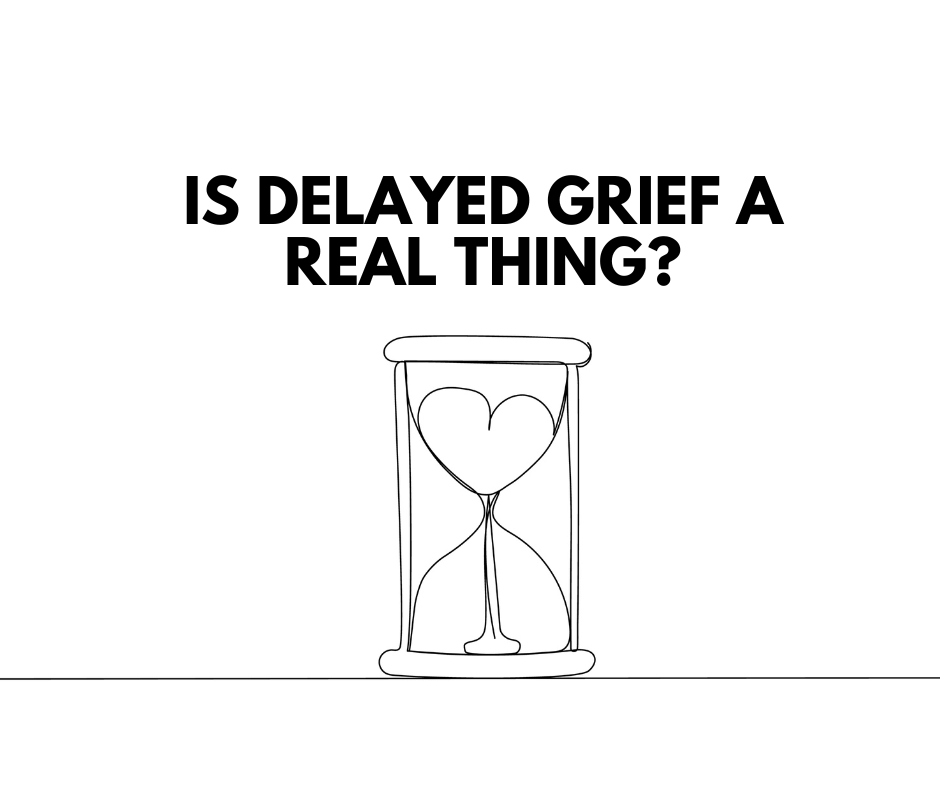Short answer: Yes. As the two words imply, there are many reasons why a person may need to “postpone” processing a loss. Life does stop or slow down just because you are mourning. Such circumstances can dramatically alter your grieving process. In addition, the shock of a loss can result in you unconsciously choosing to delay dealing with it.
In either instance, it could be weeks, months, or years before you do. But you can’t hold back your grief forever. Sooner or later, it will rise to the surface. Needless to say, delayed grief can have a negative effect on your ability to heal and recover.
Three Possible Delayed Grief Scenarios
Staying “Strong”
Many well-meaning folks will urge you to stay strong and move on. If this “advice” is internalized, it’s as if you’re putting on a show. You show the world how strong you are as you plus forward without resolving the loss, pain, and sorrow. Your go-to line is “I’m fine” as you hear people around you praise your strength.
Stunned by Suddenness
An expected change can leave you in a state of disbelief. It’s traumatic and thus, you fall back on dysfunctional coping mechanisms. You shut down and sort of go through the motions. In survival mode, you avoid the jolt of directly accepting the enormity of what has happened.
Busy-ness
If you have too many responsibilities, you may not be able to summon the strength or find the time to effectively grieve. There might be others in your life who need your support and you simply can’t figure out when to even ponder the loss.
Symptoms of Delayed Grief
When experiencing typical grief, you will notice that the symptoms you feel slowly subside over time. With delayed grief, those same symptoms may actually intensify. Until you take steps to process, the distress remains and shows itself in signs like:
- Feelings of numbness and isolation
- Rumination
- Either focusing intensely on the loss or going out of your way to avoid reminders
- Unexplained physical symptoms
- Anxiety without an obvious cause
- Sleep disturbances
- Inability to concentrate
- Hopelessness and even apathy
- Angry outburst
- Depression
All of this is happening in the “background” as you avoid taking steps to address what you’re feeling and why.
Triggering the Release
Of course, there are countless possible triggers. One common reason is that things slow down. You’re not as busy and therefore, your mind allows bereavement to move to the forefront. Also, there is the never-ending possibility of reminders. Something causes you to vividly recall the person you lost and boom, your mind decides it can’t suppress the emotions any longer. In addition, the initial shock will eventually begin to wane. When it does, there is nothing between you and the grieving process.
Whether the delay fades slowly or suddenly, you will eventually feel as if you’ve snapped out of a fog. The emotions will arrive in waves and surprise you with their intensity. You have the vital opportunity to stop running and instead, allow yourself to feel and then heal.
Coping With Delayed Grief
Once you opt to face the grief, you will need support. People in your life can be helpful. But committing to therapy is a proven and powerful decision. Grief has no timeline but that does not mean it is unmanageable. No one can predict how the mourning process will go. But a skilled professional has seen it before. That can empower you with the skills and tools you need to rise to the occasion.
With all of this in mind, I invite you to reach out. Let’s begin a life-changing conversation and get you moving on a path toward recovery with grief counseling.




